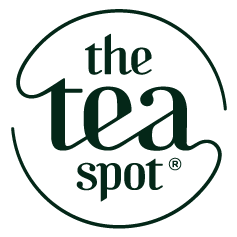After listening to the sobering predictions of the future of tea during Nigel Melican’s keynote address at the Global Tea Initiative Symposium at UC Davis this past February, I searched for the silver lining. He proposed that a number of factors will cause an increased polarization between specialty and commodity tea, which will drive the price of specialty tea much higher in the future. These factors include the global shift in labour from agrarian settings to urban centers, socio-political pressures, and increased fluctuations in weather due to global warming. We are already seeing evidence of these.
For example, the social-political labour strike by the Gorkha people fighting for their cultural autonomy in Darjeeling remains unresolved, all while putting a halt to some of the most highly revered tea in the world. Also, fluctuations in rainfall put extreme pressure on tea plants, which require distinct periods of rain and drainage, as was seen in Assam recently. And until specialty tea can pull a higher price, agricultural labour will continue to grow scarcer, compounding the issue.
These very real pressures will contribute to the ever-widening gap between commodity tea, where machines will further automate processes at mass scales, and specialty tea, where tea masters will continue to push the quality higher for tea aficionados willing to pay an increasingly higher price.
This led me to ponder what critical value-adds will be important for the future of premium tea to command higher prices and what factors will most increase consumers’ “willingness to pay.” To look to the future, I examined the not so far past.
In 2013, I was fortunate to spearhead a USDA-funded grant, which allowed us to derive common values of tea drinkers and extract preferences. We uncovered how consumer patterns change from home to foodservice settings. The takeaways were fascinating and telling of what hurdles need to be overcome.
Perceived added value in tea can come from many places. Whether you need help with sleep, energy, or digestion, there are a myriad of health benefits. There’s also value in the craft story of every tea, how ingredients travel from farm to cup, and the 5000-year history that connects tea drinkers around the world.
In the café setting, our research indicated that value comes from creating skilled beverages not made at home, such as matcha lattes and chai lattes, which have no problem pulling the same price as traditional lattes. Interviewees saw these as indulgences or even meal replacements—to use their words. But serving an average quality tea bag in boiling water doesn’t cut it for tea drinkers, who aren’t willing to pay café prices for poor quality when they could buy an entire box of tea bags for the same price. Until foodservice and coffee shops raise the bar of their tea quality and preparation, at least to the level of their craft coffee, they will find it hard to demand higher prices for straight tea.
As tea drinkers we are becoming more educated and connected to stories or origin, which honour the labour and the leaf. We care about ingesting a healthful beverage, and we like the way it feels. It fuels our day, and even the most expensive teas are less than one dollar a cup to make yourself—a small price to pay for a morning energy boost, a steady stream of focus, a powerpack of antioxidants, pre-workout hydration, and a calming nightcap. Plus, it’s likely healthier than the suite of alternative—coffee, energy drinks, smoothies, pharmaceuticals, and wine.
Specialty tea is the magic elixir of life, but we have not yet taken it to the elite status of premium wine, craft beer or coffee. The potential for growth is huge with one critical factor on our side: once you taste the sweet nectar, you can’t turn back to commodity-grade. The difference is real and industry trends suggest that we’re entering a “coming of age.” Multiple generations are falling in love, from baby boomers looking for longevity, to millennials tipping the scale as the first generation to drink tea as much as coffee.
I believe the future of specialty tea is in the good hands of a very capable and collaborative global community, which is coming together 12-14 June in Las Vegas, Nevada, for World Tea Expo (WorldTeaExpo.com).


